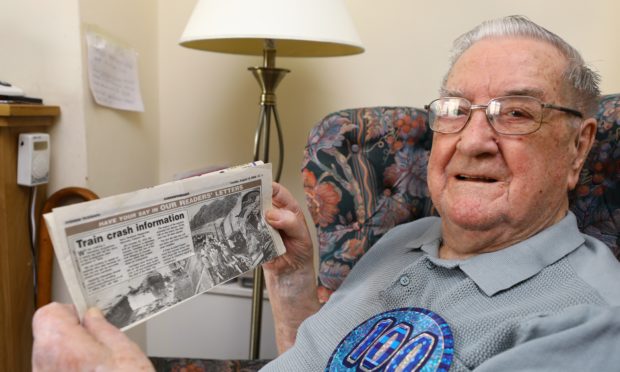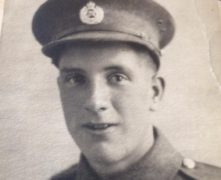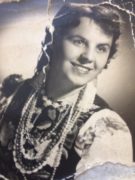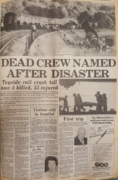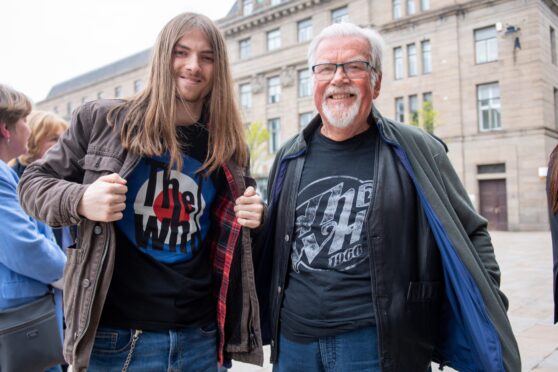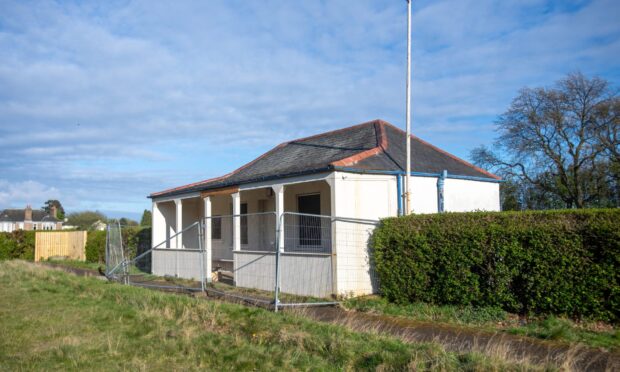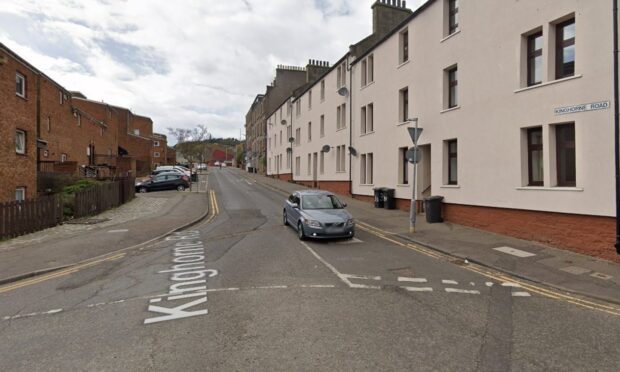A former prisoner of war who was on board a train involved in the 1979 Invergowrie rail tragedy has revealed details of his remarkable life.
As George McRitchie turned 100 on Thursday, he looked back on his eventful life and said: “There’s been good times and there’s been bad times but you just have to focus on the good times.”
As evidence of his outlook, he met his wife Bronia, while a PoW in Poland during the Second World War, when she helped him escape.
The former jute mill worker joined the Territorial Army in 1938 in the build up to war against Nazi Germany.
He was among a group of soldiers who were captured in Calais in 1940 and made to walk for about 10 days through Belgium and Germany, where he was put on a train to Poland.
During the march through Germany, cans and stones were thrown at the detainees.
Surviving on little more than scraps of smuggled in food and soup eaten out of his helmet, his weight dropped to about seven stone.
Amid panic among the German soldiers, as reports of Russians marching upon the area circulated, Bronia helped smuggle George out of the nearby town in which he had been put to work, and they made their way back to the UK.
He and Bronia quickly married in Nowe after his escape. They then lived in Scotland and started a family.
George admits it is difficult to look back on his nearly five years in the POW camp.
Mr McRitchie, from Dundee, was born in Crescent Street in 1919 and has outlived his seven siblings, of which he was the eldest.
The couple had three daughters – Mary, Frances and Susan. Susan was one of triplets, but was the only one to survive the birth.
The family lived in Glebe Street until Susan was 10-years old, and then moved to Douglas, where they lived for 64 years.
The three daughters have gone on to give George six grandchildren, who in turn have given him nine great-grandchildren.
For the past three years George has lived in a sheltered accommodation in St Marys. While he does have four visits a day from carers, he has an impressive amount of independence.
“When I was 21 I never thought I would make it to 100,” he said.
His first job after leaving school at 14 was in the Eagle Jute Mill, earning him “15 bob a week”.
He then became a courier and could be seen around Dundee on a horse and cart. He returned to a delivery job after the war, before joining British Rail.
Bronia died in 1996 at the age of 69.
The Dundee fan also enjoys football, dominoes and the odd nip of Polish vodka “for medicinal purposes”.
George celebrated his birthday with a gathering at the Queens Hotel in Dundee.
The Invergowrie rail tragedy
George worked with British Rail for 50 years in what he said was his the happiest time of his life.
The exception was his involvement in the horrific events of October 22 1979 when an Aberdeen-bound express slammed into the rear of a broken-down train at Invergowrie, causing a derailment and fire.
George was a guard on the moving train involved in the crash. Five people were killed and 51 were injured in an event which had a profound and lasting effect on the community.
George said: “I still think about it every day.”
He came out of the wreckage relatively unscathed, needing stitches on one arm, but the mental anguish was harder to brush off. He worked in a railway station rather than on a train for the remaining years of his career and retired in 1983.
However, he maintained his love of trains after his retirement, and was vice president of the Dundee Railway Club for many years.
